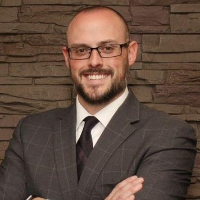Kaysville White Collar Crime Lawyer, Utah
Sponsored Law Firm
-
 x
x

Click For More Info:
-
Hepworth & Associates
Serving all of Utah » view mapUtah Criminal Lawyers Things Get Better From Here
Providing professional and compassionate representation in various criminal cases. Hepworth & Associates are tough, strong and fair attorneys.
800-625-0860  Michael Hepworth Bountiful, UT
Michael Hepworth Bountiful, UTAttorney At Law - Utah
Sturm College of Law, J.D. - 2014
 Tyler Call Bountiful, UT
Tyler Call Bountiful, UTAttorney At Law - UT, 2015
U of Oregon, J.D. - 2014
 M. Tanner Clagett Bountiful, UT
M. Tanner Clagett Bountiful, UTAttorney At Law - UT, 2016
U of Denver, J.D. - 2014
Logan Eric Collins
Criminal, DUI-DWI, Felony, Misdemeanor, White Collar Crime
Logan Collins is a criminal defense attorney in Bountiful, UT. He concentrates his practice on DUI, drug crimes, violent crimes and more. Logan is a m... (more)
Lawrence J. Leigh
White Collar Crime, Criminal, Constitutional Law, Antitrust
Status: In Good Standing
FREE CONSULTATION
CONTACTMichael John Langford
Estate, White Collar Crime, Felony, Criminal, DUI-DWI
Status: In Good Standing Licensed: 22 Years
FREE CONSULTATION
CONTACTKatherine A Conyers
Traffic, White Collar Crime, Domestic Violence & Neglect, DUI-DWI
Status: In Good Standing Licensed: 16 Years
Skye E Lazaro
White Collar Crime, Civil Rights, Contract, Wrongful Death, Litigation
Status: In Good Standing Licensed: 15 Years
Mica Mckinney
Litigation, Federal Appellate Practice, White Collar Crime
Status: In Good Standing Licensed: 16 Years

 Michael Hepworth Bountiful, UT
Michael Hepworth Bountiful, UT


